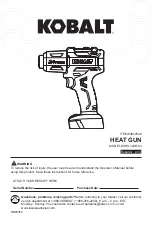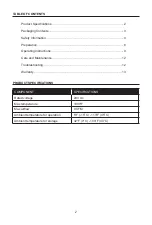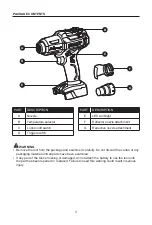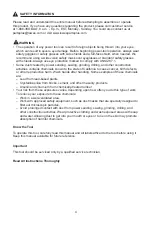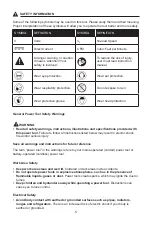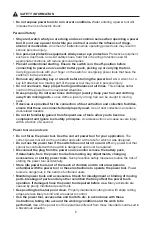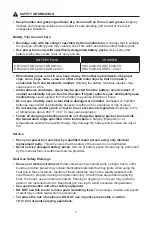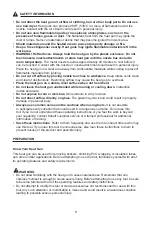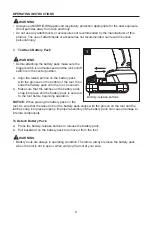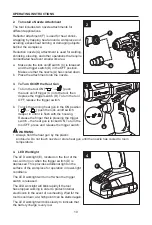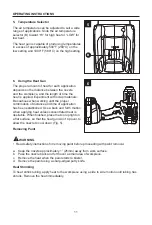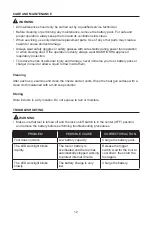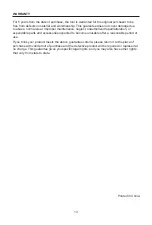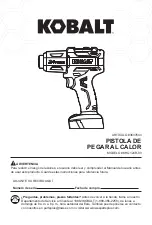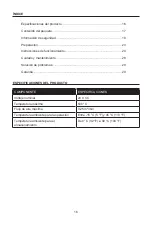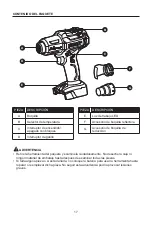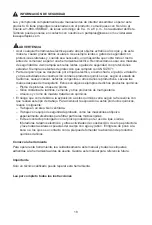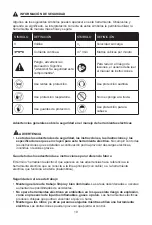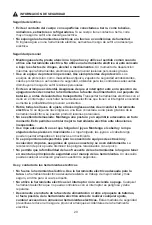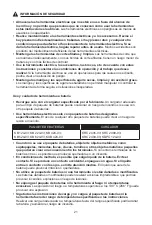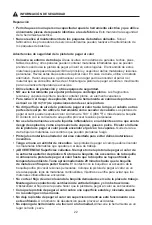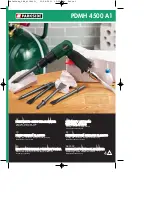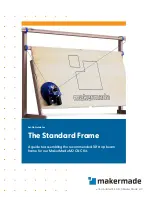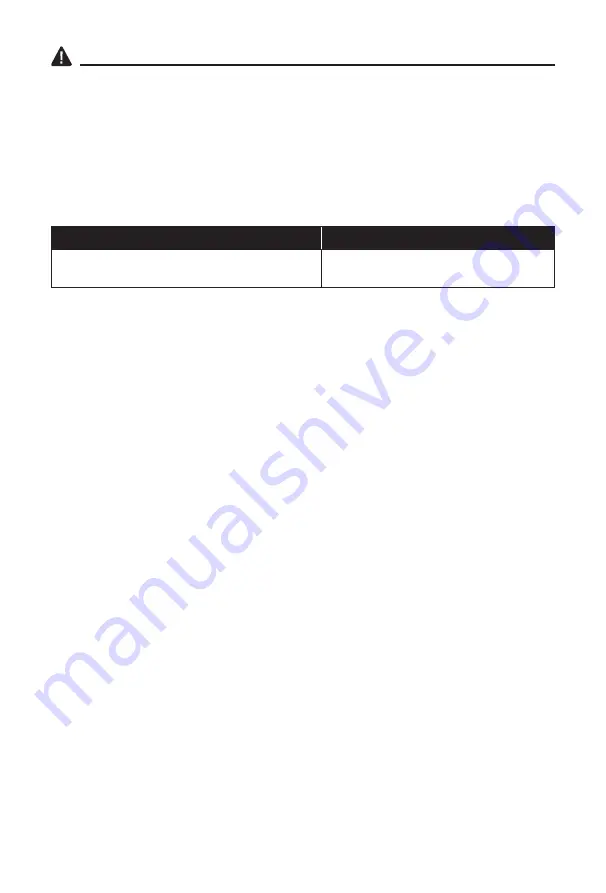
7
SAFETY INFORMATION
• Keep handles and grasping surfaces dry, clean and free from oil and grease.
Slippery
handles and grasping surfaces do not allow for safe handling and control of the tool in
unexpected situations.
Battery Tool Use and Care
• Recharge only with the charger specified by the manufacturer.
A charger that is suitable
for one type of battery pack may create a risk of fire when used with another battery pack.
• Use power tools only with specifically designated battery packs.
Use of any other
battery packs may create a risk of injury and fire.
BATTERY PACK
CHARGER
KB 124-03; KB 224-03; KB 424-03;
KB 524-03; KB 624-03; KXB 424-03
KRC 2445-03; KRC 2490-03;
KRC 2404-03; KDPC 124-03
• When battery pack is not in use, keep it away from other metal objects, like paper
clips, coins, keys, nails, screws or other small metal objects, that can make a
connection from one terminal to another.
Shorting the battery terminals together may
cause burns or a fire.
• Under abusive conditions, liquid may be ejected from the battery; avoid contact. If
contact accidentally occurs, flush with water. If liquid contacts eyes, additionally seek
medical help.
Liquid ejected from the battery may cause irritation or burns
• Do not use a battery pack or tool that is damaged or modified.
Damaged or modified
batteries may exhibit unpredictable behavior resulting in fire, explosion or risk of injury.
• Do not expose a battery pack or tool to fire or excessive temperature.
Exposure to fire
or temperature above 266 °F (130 °C) may cause explosion.
• Follow all charging instructions and do not charge the battery pack or tool outside
the temperature range specified in the instructions.
Charging improperly or at
temperatures outside the specified range may damage the battery and increase the risk of
fire.
Service
• Have your power tool serviced by a qualified repair person using only identical
replacement parts.
This will ensure that the safety of the power tool is maintained.
• Never service damaged battery packs.
Service of battery packs should only be performed
by the manufacturer or authorized service providers.
Heat Gun Safety Warnings
• Know your work environment.
Hidden areas such as behind walls, ceilings, floors, soffit
boards and other panels may contain flammable materials that may ignite when using the
heat gun in these locations. Ignition of these materials may not be readily apparent and
could result in property damage and personal injury. Check these areas before applying
heat. If in doubt, use an alternate method. Pausing or lingering in one spot may ignite the
panel or the material behind it. Keep heat gun moving to avoid excessive temperatures.
• Use eye protection and other safety equipment.
• DO NOT use this tool to remove paint containing lead.
The peelings, residue and vapors
of paint may contain lead which is poisonous.
• To reduce the risk of explosion, DO NOT use in paint spray booths or within
10’ (3.0 m) of paint spraying operations.

